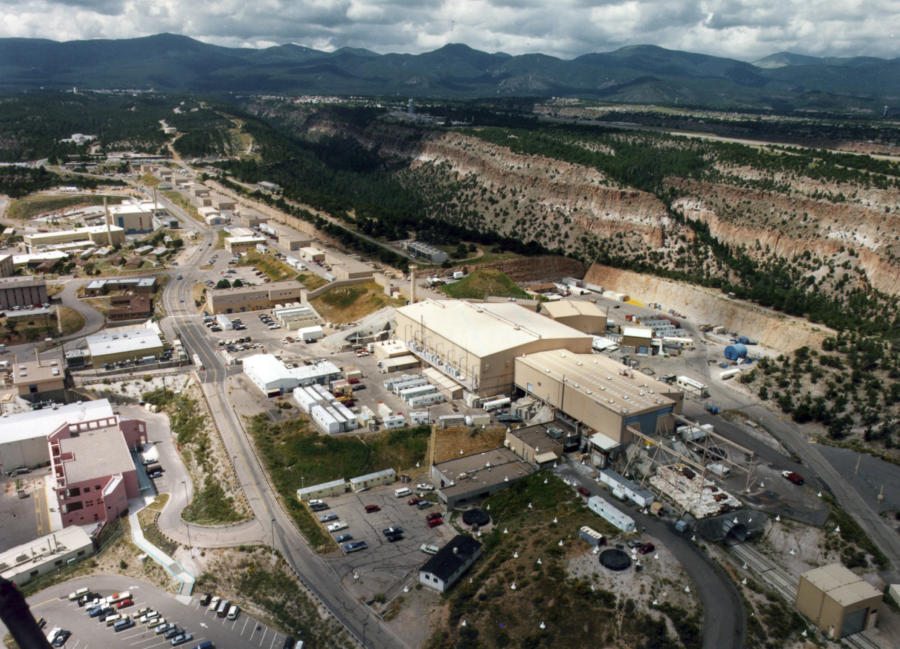This article illustrates why planned expanded plutonium pit production for new nuclear weapons at the Los Alamos Lab has a high probability of failure.

BY MARK OSWALD | abqjournal.com
SANTA FE – The U.S. Department of Energy has again found that Los Alamos National Laboratory falls short in ensuring nuclear safety in its operations, even as the lab moves toward a major increase in plutonium work under a mandate to ramp up manufacture of the cores of nuclear weapons.
A report released Monday by a DOE assessment team provides a long list of problems in how LANL manages nuclear safety issues. It notes deficiencies by both the private consortium that managed the lab for about 12 years before losing the $2 billion-plus annual operating contract last year and as well Triad National Security LLC, which took over Nov. 1.
The report says former contractor Los Alamos National Security LLC, or LANS, allowed safety issues to fester with “significant weaknesses.”
There are “institutional behaviors that have allowed identified problems to go uncorrected, problem recurrences to be routinely accepted, and corrective actions to often be delayed for years,” according to the report DOE’s Office of Enterprise Assessments.
The safety lapses are serious enough that they could lead to another shutdown of operations at LANL’s plutonium facility, the assessment suggests.
Read the report HERE
From the report’s executive summary: Overall, this assessment identified significant weaknesses in the LANS IM [issues management] process and institutional behaviors that have allowed identified problems to go uncorrected, problem recurrences to be routinely accepted, and corrective actions to often be delayed for years.Although the assessment team did not identify any immediate threats to workers, the public, or the environment, these weaknesses in IM, if uncorrected, can allow layers of defense for nuclear safety to degrade to the extent they did leading to the pause in July 2013 of key fissile material operations in the Plutonium Facility at LANL for over four years.
“Although the assessment team did not identify any immediate threats to workers, the public, or the environment, these weaknesses in IM (issues management), if uncorrected, can allow layers of defense for nuclear safety to degrade to the extent they did leading to the pause in July 2013 of key fissile material operations in the Plutonium Facility at LANL for over four years,” the report says.
Such a delay now would jeopardize the lab’s ability to meet orders to make 30 plutonium “pits” for nuclear bombs by 2025, part of a huge plan to modernize the nation’s nuclear arsenal by 2030. No pits have been made in the U.S. since 2011.
The DOE assessment team said that Triad adopted the same process for addressing safety issues as LANS, “with only minor changes,” and retained most nuclear safety managers.
“Triad is now responsible for correcting the weaknesses in that process and in the associated institutional behaviors identified in this report,” the assessment adds. It said Triad’s implementation of initiatives toward achieving a safety culture change will be “key to safely supporting increased production rates of plutonium pits through 2030.”
A lab spokesman provided a statement that said LANL “is focused on continually improving our programs, policies and procedures.”
“To that end, we are committed to making our issues management system more responsive, reliable and effective. Our goal is not just to be compliant, but to ensure safe and secure operations, safeguard the health and safety of our workforce and protect the public and the environment.”
The spokesman added, “The lab’s new management team has begun instituting changes that will enable it to become a learning organization that meets its mission objectives safely, securely, and cost effectively. While this will take some time, we are on the right track and starting to see progress.”
As progress under Triad, the spokesman cited the recent first shipment in five years of nuclear waste from the ab’s plutonium facility and that nearly one-third of all first-line supervisors have received intensive safety training.
The LANS for-profit consortium included the University of California and the Bechtel corporation. Triad is a nonprofit that includes UCal, Texas A&M University and Battelle Memorial Institute of Ohio.
The DOE assessment focuses in part on what it says has been a failure to properly categorize the seriousness of the lab’s safety problems and that managers of non-nuclear programs were much more likely to invoke more rigorous review processes.
Managers in nuclear safety divisions that were examined categorized more than 99 percent of their safety issues as merely “low-risk,” the report says, and these managers “did not categorize issues as moderate- and high-risk issues when warranted.”
The report says that the lab had viewed issues with plutonium shipments – the lab in 2016 sent plutonium cross-country via a commercial air shipping service, in violation of safety rules – “as isolated events, missing the indications of a programmatic breakdown in a LANS safety management system.”
The need for a fire suppression material in the glove boxes where workers manipulate plutonium, first raised in 2009, is still unresolved, the report states.
The report also refers to instances where too much plutonium was placed in confined spaces, which potentially can cause a runaway nuclear reaction.
One such incident in a glove box was incorrectly categorized as low-risk.
In another case, considered a Level 4 criticality infraction (on a scale of 1 to 5, with 5 being the least severe), it took six months to determine a plan of action to address prevention, “not a timely action,” says the report.
Confusing the letter “O” with zero on waste drums resulted in incorrect waste characterization codes of employees wearing respirators and was not corrected, indicating the manager in charge considered recurrence of the problem “acceptable.”
The report also said it is too hard for “working-level” workers to use a system for commenting on safety issues.
Some safety issues have been written off as resolved with only the “promise” of action, according to the report.
